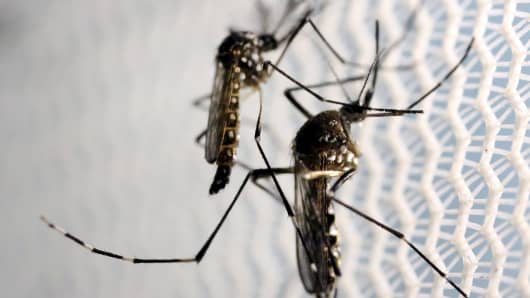I've woken up every night this past week feeling restless and anxious with thoughts of pregnant women giving birth to babies with Zika-related birth defects. As a mother myself, I cannot sleep thinking of the lifetime of hardships awaiting these women, their children and families.
In addition to being a mom, I'm also a physician and former state and federal health official. With this background, I know we have the power to prevent these birth defects, if only there were sufficient funding available from the U.S. government complemented with private sector support. With the Zika public health emergency now in its seventh month, I am greatly concerned by the reluctance to provide resources that will help prevent Zika from affecting more babies.
We've seen images of newborn babies in other countries with birth defects stemming from the virus that invades and destroys the brains of developing fetuses, causing microcephaly. Babies exposed to Zika prenatally can have a range of other problems, such as hearing loss, vision problems and developmental delays.
Now, in the United States and territories like Puerto Rico, where I recently visited, children are being born with similar birth defects. And Zika has been transmitted by mosquitoes in parts of Miami. I fear it's only a matter of time before we see larger numbers of birth defects here. Babies at risk could be your child, grandchild or neighbor's child.
As a physician, I know how devastating severe birth defects can be to families and society. Dreams for a child's bright future are shattered and replaced by endless appointments and financial obligations for medical care and services. And, as a former Medicaid medical director, I've seen how challenging it is for states to pay for the special care needed for these children—and how frustrated parents can become when limits or denials are enforced.
Time is not on our side. Delaying action will lead to greater morbidity, mortality and cost. Based on the latest figures, there are more than 970 pregnant women in the United States and our territories with laboratory evidence of Zika—and that number is likely low. Some of these women are facing agonizing decisions as ultrasound imaging demonstrates abnormalities.


